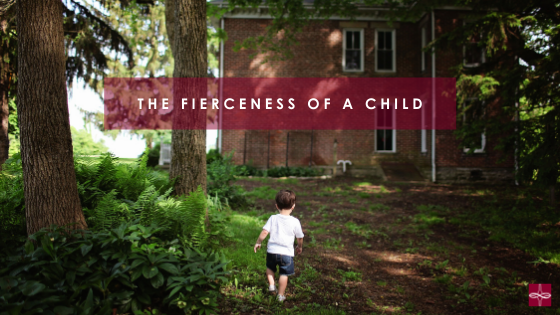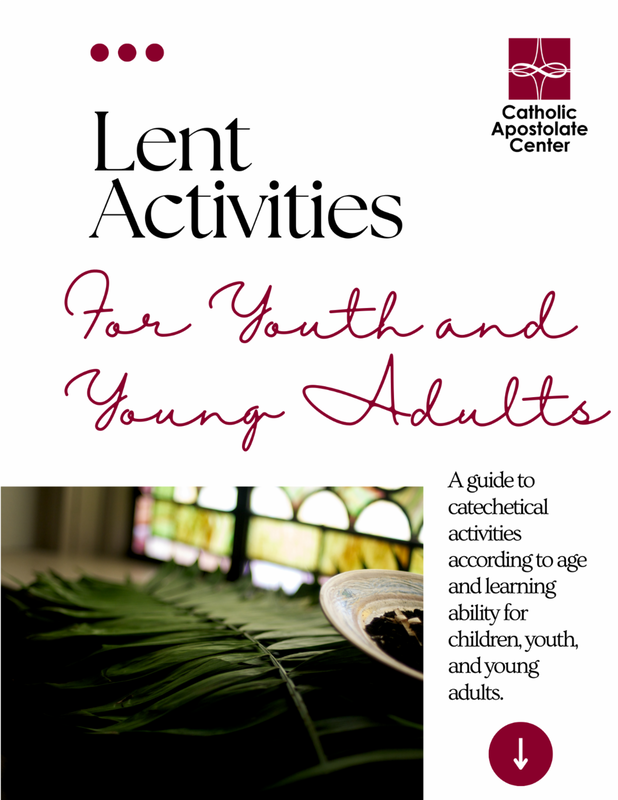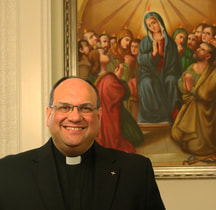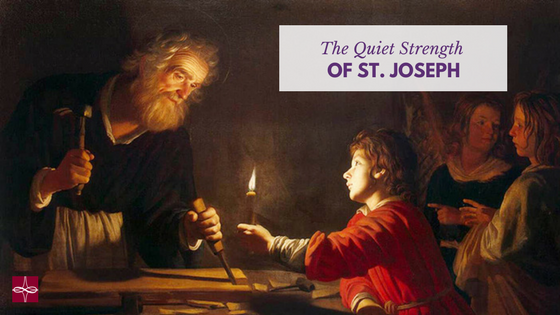|
Parenting is a wild ride. For anyone who is a parent to small children, they can attest to the highs and lows that this responsibility can have. Children are full of joy and curiosity, they show the purest form of love, and they can be sweet and kind to others without fear or embarrassment. Children are also full of big feelings, strong wills, and lots of opinions without the ability to reason their way out of problems. It’s complicated and confusing. Even to the best-intentioned parents, it can feel overwhelming and stressful. Meanwhile, you experience the sweetest moments in between. My husband and I are parents to a 4 year-old that fits this description. We are trying and we are definitely getting it wrong sometimes, but we want what is best for little Vincent and we love him more than we knew we could.
There is a lot of noise out there about parenting, and everyone wants to give advice and share their best practices. Whether on social media, in endless books of how-to’s, or from relatives and friends, there seems to be a never-ending amount of information to sort through and try out. One way that I have taken a pause from this noise is by learning from the saints. I have looked up to so many for various things in my life – for personal reasons or in deepening my relationship with Christ. But now as a parent, I look to what I might call “the experts” who raised the mother of our Savior, Sts. Joachim and Anne. I have drawn a few relatable comparisons between these two people, who remain supportive and hopeful to the Holy Family. Saints Joachim and Anne are the patron saints of parenting and grandparents. Having been childless for the majority of their married life, the two continued to pray for God’s favor and have hope. While Joachim retreated for prayer far from home, Anne grievously prayed for her husband’s safety in exchange for dedicating any future child’s life in service to God’s plan. The two then shared a dream and vision where an angel told them that their fervent prayer had resulted in God choosing them to conceive a “wondrous” child. When Mary was born and became of age to be presented in the Temple, they brought her and followed the plan of God. There are parallels in their hope and dedication to faith that I have seen in so many parents I know and have met, and their faith is admirable and should be celebrated. Grandparents are special. My family is lucky enough to have grandparents actively a part of my son’s life. Whether in his day-to-day childcare or in the vacation weeks spent with them, my husband and I would not be the same without their care and love in our lives and in our son’s life. A lot can be learned in the witness that the previous generation brings to our current lives; for good, bad, or otherwise, these people raised us and taught us how to love and live. Now, it is fun to see how they adore and dote on their grandchildren in ways we never quite knew was possible. The whole family unit, then, is a masterful conglomeration of love, mistakes, trying things, and showing up. Imperfectly, and unconditionally. Not everyone has this experience; I am very aware of that. But for those of us that do, in whatever small way or mix of ways families can be, it is fearfully and wonderfully made. Saint Joachim and Saint Anne were faithful examples of the hardship that parents and grandparents can face. They suffered in ways we as parents similarly suffer, but they remained resolute in their fervent prayer and unshakeable love for God and for each other. Their daughter became the Virgin Mary, and their grandson became Christ himself. Although I recognize this is a little bold, we as Catholic parents cannot deny that our little rascals could one day become the saints of future generations who love and also remain faithful to Christ. Parents, pray for courage to love. Grandparents, pray for your children and grandchildren’s hope. Stay faithful and the Lord will see your love. A Parent’s Prayer from Loyola Press Loving God, You are the giver of all we possess, the source of all of our blessings. We thank and praise you. Thank you for the gift of our children. Help us to set boundaries for them, and yet encourage them to explore. Give us the strength and courage to treat each day as a fresh start. May our children come to know you, the one true God, and Jesus Christ, whom you have sent. May your Holy Spirit help them to grow in faith, hope, and love, so they may know peace, truth, and goodness. May their ears hear your voice. May their eyes see your presence in all things. May their lips proclaim your word. May their hearts be your dwelling place. May their hands do works of charity. May their feet walk in the way of Jesus Christ, your Son and our Lord. Amen.
0 Comments
“Because children have abounding vitality, because they are in spirit fierce and free, therefore they want things repeated and unchanged. They always say, "Do it again"; and the grown-up person does it again until he is nearly dead. For grown-up people are not strong enough to exult in monotony. But perhaps God is strong enough to exult in monotony. It is possible that God says every morning, "Do it again" to the sun; and every evening, "Do it again" to the moon. It may not be automatic necessity that makes all daisies alike; it may be that God makes every daisy separately, but has never got tired of making them. It may be that He has the eternal appetite of infancy; for we have sinned and grown old, and our Father is younger than we.” G.K. Chesterton, Orthodoxy Today on the feast day of St. Therese of Lisieux, affectionately known as the Little Flower, I turn to my sons’ example in accepting everything completely from God. My almost two-year-old is predictable: he loves blueberries, watching the garbage truck pick up trash on Mondays and Fridays, and playing in the backyard. Recently he has taken to playing with a giant cardboard box that my husband engineered into a “cottage” with a window and a workable door. The joy and excitement he exudes each morning playing with his cardboard cottage didn’t strike me at first. But after a few rounds of him serving me imaginary chocolate milk and tea from his little abode, I realized that this joy, the same joy and freedom he has when running ferociously to the front of the house to see the garbage being picked up, is the joy and freedom St. Therese of Lisieux wrote about and emulated in her life. “To remain a child before God means to recognize our nothingness, to expect everything from God. It is not to become discouraged over our failings, for our children fall often, but they themselves are too little to hurt themselves very much.” St. Therese of Lisieux Therese gives us the example of radical abandonment to the Father’s will. When we take a snapshot of her life—where she lived most of her life, whom she met, what accolades she was awarded—we see that her life was not much in worldly standards. And yet, Therese is honored with the title “Doctor of the Church.” Her writings and her example of charity beckon us to take a closer look at this simple and great saint. While Saint Therese is a heavily pestered saint when it comes to intercession (as her intercession is known to be great) and her quotes are seen often, today let us take after her childlikeness and see the world through her eyes with childlike abandonment to God. I encourage you to find five beautiful things in the mundane of your day that your eye has not yet “truly” seen before. Thank and praise God for the life He has given you, in all its sufferings and joys, and ask for St. Therese’s intercession in seeing the beauty in the mundane. For more resources on Marriage and Family, please click here. I watched her curly little head bounce away from me further down the hiking path and around a bend, out of my sight. I knew her older brothers would slow down so she could keep up with them, taking her under their wings. In the midst of a global pandemic, the woods were a safe space, open and free from the danger that seems to lurk everywhere these days. Nonetheless, my heart rate picked up along with my pace. What if a stranger was on the path? What if she fell and got hurt? I couldn’t see the path ahead, and I was afraid. I hurried along, my anxiety increasing as my steps forward failed to lead me to a view of my children. My thoughts turned dark while the woods around me became bright. Trapped in my own head, I failed to notice the sun breaking through, filtering light through the treetops. Until—there! The sunshine reflecting off of my little girl’s sequin covered sneakers allowed me to catch a glimpse of my babies. “Red light!” I yelled, in our family shorthand for “stop-moving-your-body-immediately.” The birds scattered, startled. My children froze in place as they waited for me to catch up with them. As I knew they would be, the boys were watching closely over their little sister. Taking her by the hand, they coached her through the mud and over the fallen branches. “See, Mama? Pretty!” my curly little girl exclaimed, joyfully depositing semi-crushed wildflowers into my hands. After rubbing her nose against mine, she joined her brothers on a moss-covered log, not registering my fear for even a moment. Exhaling a sigh of relief, I praised God in joy for great big brothers, my safe little girl, and a Father who is Light, illuminating the way. In this season of uncertainty, I find myself living that moment on the hiking path time and again: rushing forward, afraid, unable to see what is ahead. My days are filled with research and passionate conversation about schooling, and what the right choice for our family will be this fall. We deliberate over each barbecue invitation and mourn the loss of birthday celebrations that will never come to life. Parenting in a season where change is the only constant is overwhelming. I’m living that moment on the hiking path again: where I could not see, there was light. Though I was afraid, the Father was before me, protecting my little ones. So now, instead of remaining trapped by my thoughts, I am pursuing His power and protection. I am practicing seeking the light. In his letter to the Colossians, St. Paul reminds us that we can live in joy even in the midst of hardship, and he shows us how: “[We are] strengthened with every power, in accord with His glorious might, for all endurance and patience, with joy giving thanks to the Father who has made you fit to share in the inheritance of the saints in light. He delivered us from the power of darkness and transferred us to the kingdom[...]”(Colossians 1:11-12). Joy is a pursuit. By God’s great mercy, we are called out of the darkness and into the light. We are invited to share in the inheritance of the saints, if only we can pursue His power and glorious might instead of depending upon our own. When left to myself, I abandon joy for the hopelessness and despair that seems to permeate the world during this pandemic. However, when I pursue the heart of Christ, I am promised endurance and patience. I am equipped to face the reality of a sick and broken world and to remain unbroken by its weight. In His power alone, joy still abounds. Joy is a practice. Turning hands full of crushed wildflowers to praise comes with intentionality. So: let us train ourselves to joy. When we feel the dark closing in on us, we are called to joyfully give thanks to the Father and to seek His fingerprints that so graciously mark our lives—to acknowledge His many gifts. When the trees block our view, let us enjoy the sunshine filtering through their branches. When the path is rocky and unsure, let us acknowledge that He walks alongside us, and before us. When we suffer through sickness, hardship, and isolation, let us hope in God who has overcome suffering once and for all. This is joy. Grace-filled moments of contentment, happiness, peace, safety, and hope that we open our eyes to experience, even in the midst of the dark. Where happiness is fleeting and circumstantial, joy is ours to keep no matter the circumstance. Along this path I will stumble and fall. Joy will evade me as I am burdened by fear and uncertainty. But I will allow the Lord to raise me up, seeking the joy He offers me despite my skinned knees. Like my curly girl, I choose to trust that I am not alone. I choose wildflowers and light. I chase joy.
As a child, I was perplexed by the three in one nature of the Trinity. It was a mystery that was hard to fathom, but so much about my day to day Catholic faith was steeped in the Trinity that I simply believed and accepted it without question. Everything, from grace before meals, the beginning and ending of our prayers and devotions, the opening of the liturgy of the Mass, and the reception of the sacraments of Eucharist and Reconciliation, began “In the name of the Father, and of the Son and of the Holy Spirit.” In my mind as a child, I considered the Trinity the divine family who created and loved me unconditionally. I felt a strong sense of security under the umbrella of the love and protection of the Almighty, the Savior, and the Helper – as I learned to refer to them. Now in adulthood, I have a deeper perspective on the Holy Trinity – my ‘divine family’ –as being the basis for Christian living. I have been fortunate to grow up in a loving family with a father who lived his life reflecting the divine love of the Holy Trinity. Being nurtured in a very tangible way through the example of my dad’s faith helped me understand and appreciate the gift of family. As a young teen, I remember my father’s admonition from Exodus: “Honor your father and your mother, so that you may live long in the land your God is giving you.” It wasn’t a suggestion; it was a command that came with a promise. My dad had a quiet countenance, but when he spoke, I listened! He appealed to my sense of what was right and encouraged me to be good. Just as God the Father instructed His people and led them on the right path, even amidst great suffering, my dad led our family with a confidence that being good and doing what is right would bring us to eternity with our divine family. Throughout several millennia, God has watched over His creation with providential love. Through the ministry, death, and Resurrection of Jesus, He has shown us mercy very personally. The indwelling of the Holy Spirit in each of us guides us on the daily path of truth. What is so magnificent is how God ordered the human family to live out His wise and benevolent plan. In the Holy Trinity we are given the totality of all we need to live a holy Christian life. I join St. Paul in praying: “This then is what I pray, kneeling before the Father, from whom every fatherhood in heaven or on earth, takes its name. In the abundance of his glory may he, through his Spirit, enable you to grow firm in power with regard to your inner self so that Christ may live in your hearts through faith, and then, planted in love, with all God’s holy people you will have the strength to grasp the breadth and the length, the height and the depth, so that knowing the love of Christ, which is beyond knowledge, you may be filled with the utter fullness of God.” (Ephesians 3:14-19) In Familiaris Consortio, John Paul II shares how earthly fathers “reveal and relive on earth the very Fatherhood of God.” Through my dad’s prayerful and faithful commitment to his role as husband and father, he led us to walk with God. His daily choices to pray and seek wisdom, to act charitably, and to put the welfare of my mom and his kids foremost taught me what the love of the Trinity looks like. By embracing his vocation as protector, provider, and teacher, my father made God’s love manifest in our domestic family. The older I get, the more I treasure this rich heritage I’ve been nourished in! Pope Saint John Paul II also wrote that “a man is called upon to ensure the harmonious and united development of all the members of the family… by exercising generous responsibility for the life conceived under the heart of the mother, by a more solicitous commitment to education, by work which is never a cause of division in the family but promotes its unity and stability, and by means of the witness he gives of an adult Christian life which effectively introduces the children into the living experience of Christ and the church.” This type of earthly fatherhood is the embodiment of the divine being of God the Father in the most Holy Trinity. As the national day to celebrate fathers follows shortly after the Solemnity of the Holy Trinity, it seems fitting to reflect with gratitude on the gift of our divine Father and our human fathers—as well as the rich heritage we may possess through them. My dad lived a full ninety-four years and made it his mission to evangelize us to his last breath. He never ceased to serve his children and was a witness to the importance of a personal relationship with the Trinity. He shared with us his prayers to his ‘daddy’ in heaven and to his favorite saints. He encouraged his grandchildren and great grandchildren to talk to God throughout the day and beg Him for help. He exhibited an abiding hope in gaining something good from every experience, good or terrible. His favorite expression to everyone he encountered was “everything is beautiful!” His peaceful, positive countenance is what everyone remembers of him. This countenance comes from his life lived closely under the protection of God our Father, his devotion to the Sacred heart of Jesus, and his willing surrender to the wisdom of the Holy Spirit. My earthly father was a gift who made the love of God real for me; I will be forever grateful. My wife and I welcomed our first daughter into the world on February 24th, and we brought her home a few days later on Ash Wednesday. As is the typical newborn parent experience, we’ve endured frustrating, sleepless nights and reveled in joy-filled, playful mornings. Because of stay-at-home, work-from-home orders in Texas, my parental leave has been longer than I anticipated, but I believe this is a blessing. Each moment I’ve had with my daughter has been precious, and as I sit on this (squeaky!) rocking chair holding her in my arms, balancing my laptop on my knee, the recent advice of expert parents runs through my mind and evokes in my heart a fresh understanding of God’s divine fatherhood and my pursuit of sainthood. In the weeks leading up to our daughter’s birth, one mother of 6 said something to me to the effect of: “The nights are long and the days are short, but the years are the fastest of all.” In these first few weeks of parenthood, I’ve found that my wife is more easily roused during the night. When it’s my turn (opportunity, really) to get up mid-REM cycle, the nights really do feel long. Honestly, they drag. But it’s struck me more than once that getting up in the middle of the night is a very practical way that I can pursue holiness in my vocation. To sacrifice sleep to offer comfort to my child and rest for my wife is not in the same league as answering a burning question for the Summa or calling out a witty line while being burned at the stake, but it is a constant formation in the virtues of humility and charity. I’m led to consider St. Therese’s “little way,” which makes more and more sense each day. Those long nights always do turn into days and, I’m sure, the years will speed by soon. Many people, including our pediatrician, have said, “Always hold your baby in the first few weeks, even when she’s sleeping. You’re not spoiling her, and you won’t get to do that forever.” As a general rule, I’ve always believed babies are cute and, therefore, worthy of spoiling. But no one warned me that when it comes to one’s own child, evolutionary biology and divine motivation combine to make one certain that one’s own baby is the most perfect, most adorable being on all the earth and, therefore, is automatically deserving of every good thing. When I’m holding my daughter in my arms, and I gaze upon her (perfect) little face with its self-inflicted scratches and baby acne, I’m blown away at how much love I have for her. Then, I’m briefly terrified at the thought that something bad could happen to her. And isn’t that how it is for our relationship with God our Father? He gazes upon us, loving us with all our imperfections, slightly terrified and sorrowful at the thought that sin and death and temporal pursuits could lead us to ruin. As I adjust this baby in my arms right now, I’m wondering whether God pulls us closer to His bosom in those moments of near separation, gazing upon us all the while, reminding us how beloved we are with, as Nouwen says in Life of the Beloved, “all the tenderness and force that love can hold.” There are many more pieces of advice that have yielded great spiritual reflections for me these last few weeks. Now, I know that I’m not offering any groundbreaking reflections, but maybe the point of this post is not to offer a new thought, but instead to acknowledge that God has spoken these familiar realities of His love and affection for me in a deeper way through the experience of my vocation. I’m encouraged to remind you in these times of distress: God is a loving Father whose sacrificial love turns against all else, even His own justice (Deus Caritas Est, 10) to gaze upon you with all the force that love can hold. Perhaps this is a notion all mothers and fathers before me—spiritual, adoptive, and biological—have come to understand already, but it’s consoling to know that in a time of uncertainty, God still speaks to and affirms His people through personal encounters. Even through a sleeping baby and a squeaky rocking chair. For more resources on Marriage and Family, please click here. We are living through an unprecedented time. Just a few months ago, I couldn’t have been more excited for the spring weather, finishing maternity leave, and being able to bring my now-2-month-old to visit family and friends. That is not our reality. I am devastated that I cannot share my happiest joy with people who love my son in-person. My heart breaks for my grandmother who has never met her great-grandson, for relatives who live in different states who have yet to see him face-to-face, and for the inability to even host people safely at our home. It’s painful to think about, but knowing we’re staying safe and healthy is a relief. This past Easter weekend was when we would have been traveling to visit family. Instead of focusing on the “would-haves,” I’m challenging myself to live in the “right-nows” and the “will-bes” even though it is so difficult. Right now, my little son is snuggled and sleeping sweetly near me. Right now, my family is healthy and safe from the virus. We will be able to get through this together and will be okay when this is over, although there is no timeline to lean on. Right now, God is watching over us and protecting us as he has always done and will do. The season of Easter that just began serves as joyful relief to my fearful and saddened heart. I know that when Christ died on the cross, Jesus’ disciples were experiencing these feelings, too. In Mark’s Gospel, we read about the disbelief that plagued his followers after hearing that Jesus was not in the tomb, “When they heard that he was alive and had been seen by her, they did not believe” (Mk 16: 11). Jesus’ disciples doubted and were unbelieving, like so many of us during this pandemic. But, in John 16: 22, Christ encourages, “So you also are now in anguish. But I will see you again, and your hearts will rejoice, and no one will take your joy away from you.” In Matthew’s Gospel, we furthermore hear Christ tell his disciples, “And behold, I am with you always, until the end of the age” (Mt 28: 20). With these passages in mind, I find comfort in this Easter season knowing that however inconvenienced and pained some of us are, with God at our side this will soon pass, and we can be happier than ever before. For those who share an even more difficult level of grief from losing a loved one, may you find peace in the knowledge of eternal life with the Father. In 1986, Pope Saint John Paul II spoke to Catholics in Australia saying, “We are an Easter People and Alleluia is our song!” He went on to say, “We realize that joy is demanding; it demands unselfishness; it demands a readiness to say with Mary: Be it done unto me according to thy word’”... and later goes on to implore the Blessed Mother to pray for us saying, “Help all your children to see that the good things in their lives come to them from God the Father through your Son Jesus Christ. Help them to experience in the Holy Spirit the joy which filled your own Immaculate Heart. And in the midst of the sufferings and trials of life, may they find the fullness of joy that belongs to the victory of your Crucified Son, and comes forth from his Sacred Heart. In this way, let us try to do the same.” As Easter people then, we cannot forget that during this time of great trial, our hearts already know of great sorrow followed by even greater joy. We are fortunate to be able to stay connected through this hard time with the help of social media and technology. There are so many versions of video-chatting that we can choose from. Just saying hi to someone you miss might make both of your days a little brighter. Pictures and videos of the things that you find joyful may also bring joy to someone else, so try to share the good little things with others if you can. As we look for silver linings in this pandemic, let us pause and appreciate the good things right in front of us. Gratitude is one way to ease the pain. I’m grateful for my healthy little boy, my grandmother’s health, the beautiful day outside, my dog needing snuggles, and my husband being able to work safely from home. I pray for those who are not so lucky: those who are grieving, friends and family in isolation and alone, each and every worker who is away from their own family to fight this crisis on the front lines, and those in hospitals who are infected and sick. Right now, when I get sad about plans changing and people missing out, I stop and let Christ into my heart during this Easter season. Right now, when I start thinking of the many fears and anxieties from this pandemic, I breathe and let Christ in. Through it all, I trust that God’s will be done. In this Easter season, let us rejoice in the risen Lord! We can get through this with Christ who strengthens us! 3/31/2020 Altered States: Living With Adult Children During Coronavirus | COVID-19 ResourceRead NowAs parents in our early sixties, living in household with our 25, 23 and 19 year old adult children is proving to be an interesting challenge during this pandemic. We have successfully transitioned from training six little ones to launching three and sharing our household with the remaining three. Each of us lives what I consider ‘parallel’ lives under one roof. We all go to our respective jobs, enjoy our own friend groups, and participate in our specific extra-curricular activities, along with sharing family time together. It is a state of life that has forged a certain routine that is pleasantly habitable. Slam dunk us all into the middle of an unprecedented disease that turns our world upside down overnight – and our happy coexistence becomes challenged. We are forced to adapt to new schedules and new restrictions that we all must willingly cooperate with. Moving from government recommendations to ‘imposed sanctions’ is met with varying reactions from the five in our household. Those of us who are easily contented engaging in solitary activities are not so affected. We find new books to read, projects in the house or the yard, a nature series to watch, extra time to participate in the Chaplet of Divine Mercy, the Rosary and the Mass on tv. Those of us who are energized by hanging out with our peer group, attending public events, or going out to restaurants and pubs find these restrictions close to being imprisoned. Our foremost responsibility as parents during this uncertain time is to be very intentional in communicating with our young adults about the ‘rules’ and the ‘whys’ and the ‘wherefores’ of cooperating in a Godly manner to all of this. We speak daily of the importance of adhering to social distancing and the extra measures of hygiene and disinfecting while allowing our children to express their frustrations, share new information, and ultimately come to agreement to remain steadfast in cooperation when it is difficult. I can’t stress enough the necessity of speaking daily in a positive manner so that we all help keep each other accountable. Getting independent, self-sufficient young adults to operate from the same page is most definitely a tight rope act. I’m accompanying them in a way I never have before. It requires lots of talking and more listening. It necessitates creative ways of encouraging. Each family dynamic is different, but in my male-dominated household, what I have found brings us together is food. My plan these days has been to cook, cook, and cook some more! Preparing meals that satisfy and draw us together opens us to sharing our thoughts and feelings and encouraging one another with what we find most difficult. In our discussions, our adult children share their creative ways they have found to connect with friends and to cope with the temporary suspension of activities they regularly participated in. Our pace of life has slowed considerably. My job is on temporary shutdown, but everyone else still goes to their jobs on altered shifts with no work meetings. When they arrive home, I make sure a meal is ready and we talk and pray and relax together. They are quicker about getting their laundry done, and helping keep common areas of the house disinfected every day. This altered state of living builds character in each of us. We are being called to willingly forego engaging in activities we love for the greater good of our fellow man. Practicing restraint, perseverance, respectfulness, and kindness allows us to grow in holiness that builds up the kingdom of God. This witness promotes community and joy amidst the pain and devastation that is all around us. One activity we have purposely not engaged in during this pandemic is watching or reading the news regularly. We do not watch any major news telecasts and keep apprised of current affairs through government messages and the several medical people in our family. We choose not to obsess on what is happening hour by hour. Instead, we focus on praying, eating well, getting extra sleep, playing games, watching movies, reading books, and pursuing our hobbies in our home space. We essentially have created our own little bubble to weather this storm together while continuing to participate in our normal duties to the extent that complies with social distancing. We are fortunate to live in a digital age where we can access a degree of connectivity through our various devices and remain a safe distance apart. We were created to be relational. We do not want to live this way solely, but we have the privilege of being connected to others like no other time in history. So far, in our semi lockdown mode – no one has blown up at another, no one has a crazed look about them, no one has run away! We are all present and accounted for under one roof amidst significant life changes. Our home remains a sanctuary of harmony and peace. This altered state of living together is a fruit of ‘grace’ that I believe God is showering on us. He is equipping us as we pray with the virtues of prudence and perseverance. He is covering us with His balm of peace to behave respectfully and kindly to one another. I am mindful of my continued dependence on the Holy Spirit’s grace to guide me as a mother. My prayer is for parents everywhere to walk in faith with your children in the will of God and grow in peace and joy together, whatever the circumstances! 3/20/2020 In This Together: A Resource Guide for Families During Coronavirus Quarantine | COVID-19 ResourceRead NowTo all the parents home with their children, who are looking for creative, easy, or fun ways to spend the day, here are some great options to try for spiritual, mental, and physical health! Set a routine. It is important to establish consistency and keep kids on a structure like they are during a school day. For older children, have them collaborate with you as you create a schedule to allow for some influence on their day. It allows for predictability in the day, and children knowing what is expected of them is crucial to the well-being and peace of all in the family. Below is a schedule example. This can be used as a starting place for your family. Feel free to move things around or dedicate your time differently. What’s important is maintaining a routine that works for your family! Example:
Focus on gratitude. With many feeling anxious and having to deal with a lot that is so unknown, having a grateful heart can mean a world of difference for your well-being and that of your family. Have your child write thank-you-notes to mail carriers, restaurant workers, grocery store employees, and members of the family. Or, start the day by finding 3 things to be grateful for, then end the day like that too. Talk about this with your child and share your gratitude with them.
Prayer. There is nothing more powerful than prayer, and prayer as a family is crucial during this time at home together. Make time. Take time. Add it to a daily routine. In addition to saying prayers you may know by rote, consider reading the Daily Readings from USCCB to read the Word together in prayer. Play! For young children, older teens, and everyone in between, play is crucial. For older children that may mean down-time or free time to decompress, but for young children in elementary school this is so important for development. Playing together, but also playing independently helps support their creativity. As a parent, also take some time to think of ways you can “play”—not only with your children, but with your spouse or on your own. Make sure to come up with fun activities that are life-giving for you and your spouse: board games, a puzzle, baking, etc. Pretend and make believe. “Boredom breeds creativity” I was once told, and I couldn’t agree more! When children are given a chance to imagine and pretend away from distractions and technology they will think up all kinds of incredible things. As a parent, you may need to guide or inspire some pretend or make-believe with prompts or guidelines until your kids seem ready to take-off on their own. Even giving your child a difficult or challenging task and saying, “figure it out” may help for older kids who need to problem-solve. But here are some ways to get started:
Exercise. For children of all ages and adults too, exercise is so important. Although we must consider social distancing, getting outside and even just taking a walk is more crucial than ever as we are in our homes all day long. If you don’t have a yard to play in, try walking to the closest field or park to catch a ball or ride a bike around the neighborhood. If you cannot get outside, there is plenty to do inside. YouTube has workouts for children and adults, and there are workouts on Netflix and other streaming services to get you started. Write letters. This is a nice thing to do at all ages and levels of writing abilities, young ones can draw pictures and write what they can, while older kids could tell someone all about their latest adventure at home. Write to grandparents, relatives, elderly folks in nursing homes, neighbors, and friends from school who are also at home. It’s amazing how good someone may feel receiving a note or letter, knowing your child was thinking of them. Call someone, FaceTime, or video chat with someone. We are blessed in this digital age to have technology that can still keep us “together.” Calling friends, family, and loved ones, either on the phone or using a video chat application, maintains and strengthens our relationships with people we may not be able to see or visit right now. Read a book. Have your child help you create a booklist of 50 or 100 books and see how many they can read, then have a fun prize like baking cookies together or extra down-time be the reward. Activity pages made by teachers. For kids who are out of school altogether, look for materials online to keep kids up to speed on math skills, reading activities, and everything in between. With schools shut down, there is plenty out there to find! Make your own studying tools. Don’t forget that anyone (including the student) can make flash cards for addition, subtraction, multiplication, and division - as long as you have paper and something to write with! Some drills you could practice:
Fine motor development. Play with Play Doh (or make your own). Squeeze items with tweezers. Count and play with beads or buttons. Bake and roll out dough, ball up cookies, or knead pizza dough. We are living in unprecedented times which can add to the stress level of family life. We invite you during this pandemic to see this as a blessed time to rekindle relationships within your families and communities through prayer, play, and creativity and hope these resources will prove fruitful for you as we continue to navigate this time. Click here to visit our COVID-19 Resource Page Click Here to Download this Post as a PDF! Recently, my life has changed a lot. I had my first child, Vincent Scott Pierno, on January 31st, and he is the greatest joy I’ve ever known. I never knew that becoming a mother could fulfill my life in the ways it has, and I thank God each day for the happiness, tears, and everything in between that he has brought into my life. As a family, we’ve also started house-hunting and looking for a place to settle within this busy and chaotic Washington, DC area. My in-laws will be moving in with us, and although they’ve already been an amazing help with the newborn, it’s another change to our lifestyle. Finding joy in these changes has been challenging at times, but not impossible through the grace of God. I invite you to join me in reflecting on change in our lives and ways to find joy during times of trial and tribulation. One way to work through life’s changes is through Scripture. There are so many examples we can look to that give us strength and remind us of the goodness in change. One is Philippians 4:6-7, which says, “Have no anxiety at all, but in everything, by prayer and petition, with thanksgiving, make your requests known to God. Then the peace of God that surpasses all understanding will guard your hearts and minds in Christ Jesus.” This passage gives me hope. It can be anxiety-provoking to go through so many changes all at once, but Christ gives us strength and we can do all things with his help. Another verse from Joshua 1:9 that speaks of courage during a hectic time is: “I command you: be strong and steadfast! Do not fear nor be dismayed, for the LORD, your God, is with you wherever you go.” In Scripture, we look at examples of people who have also found change difficult and needed support from God. This reliance is the definition of faith: trust and dependence on God through all things, even when the end is not in sight. Another way to work through life’s changes is through prayer. In prayer we can develop a closer relationship with God, and in this dialogue find joy in knowing Christ more deeply. Prayer can be done in many ways: silently, out loud, in reflection, through journaling, and even through participating in the Mass regularly. Since prayer is “both personal and communal,” we can encounter Christ however we feel most comfortable. I’ve found that the most important part of this prayer is not to always ask God for things, but to offer thanksgiving and to listen. The “listening” is the hardest to do. The chaos of a busy and a constantly changing life makes it even more difficult during challenging periods to take time and listen to God. However, it is in those hard times that we can deepen our relationship with Him. The final way I’d really like to impart is by keeping track of and celebrating joy. In this age of social media and 24/7 news updates, it’s easy to see so much negativity all around us. People gossip about others, worry about things that have nothing to do with them, troll people online for their own enjoyment, and trash talk things that people don’t need to even have an opinion about. This negativity can seep into our daily lives and we can get lost in it. I invite you instead to be a whirl of positivity. As Catholics, we are called to action by being missionaries in the world. St. Vincent Pallotti suggests this in his teachings, and brilliantly states this saying, “Remember that the Christian life is one of action; not of speech and daydreams. Let there be few words and many deeds, and let them be done well.” I find his words timeless. The deeds that Pallotti refers to can be simple ones, such as celebrating anything good that comes into our lives by posting it on social media or encouraging joy in the lives of others. We could truly create small havens of joy for people to encounter by simply finding the joy that already exists. Share this joy and gratitude with at least one person, whether in-person or online. Some examples from my life include sharing in my son’s new life and looking for the good in being home with him rather than the stress. Even something as easy as a smile could change someone’s day. I invite you to use these hashtags when you post about your joys as we get through this life together in Christian spirit! #joyinChristianaction #findingjoyineverything #discoverjoyfulmoments Today we celebrate the feast of St. John Paul II, a saint of our times! He is remembered for many things, including his passion for the arts, outdoors, youth, and families. St. John Paul II also had a deep devotion to Mary, and in what I know of St. John Paul II’s life and loves, we can bring no greater joy in celebrating his sainthood than by honoring our blessed Mother. St. John Paul II’s favorite prayer was the Rosary, and I too, have developed a fondness for praying it. I stumbled upon a recording a couple of years ago in my desire to pray it intentionally. As I would listen and pray along in my car every morning before work, I discovered a love for each mystery and the fruit they bear, as like Mary, I “pondered them in [my] heart” (Luke 2:19, 51). The mysteries of the Rosary invite us to contemplate the life of Christ through the memories of Mary. St. John Paul II says remembering these mysteries “were to be the ‘rosary’ which she recited uninterruptedly throughout her earthly life” (Rosarium Virginis Mariae, §11). In this remembering, the account of the Gospel from the eyes of Mary are timeless, “not only belong[ing] to ‘yesterday’; they are also a part of the ‘today’ of salvation” (John Paul II, Rosarium Virginis Mariae, §13). In this, St. John Paul II reminds us that the Rosary is an invitation to participate in Christ’s divine life, and it is relevant across time to the faithful of all ages. Recently my routine for praying the Rosary has changed as I am now on maternity leave and spend the day taking care of my newborn daughter. Instead of rushing to get my two-year-old son into the car and dropped off at daycare before work and enjoying my prayer time alone in the car, we have the opportunity to hop in the stroller and walk to daycare, spending time together saying hi to neighbors and marveling at the changing of seasons before he starts his school day. Despite the enjoyment both my son and I get from these walks, in the transition of summer at home with mommy to school, and the transition from being an only child to living the realities of being a big brother at only two years old, for quite a few weeks my son was not happy about leaving home for the day. Although my son loves school, he was hating drop off, and his anxiety (and let’s be honest, mine, too) crept in the closer we got to school each day. One morning as I was trying to get him excited for the day, I asked him if he wanted to pray the Rosary with me, telling him it always brings me calm and comfort, and he said yes. I told him I would let my recording play, and I would tell him the stories of each mystery. Thus began a new routine for us each morning. As the Joyful Mysteries play, I tell him about how much Mary loved God that she said yes to being Jesus’ Mommy, and how we pray that we can love God like her and say yes to Him when he needs us to. When the Luminous Mysteries play, I tell him about Jesus’ first miracle, turning water into wine at the Wedding at Cana, and that through Mary, she will lead us to Jesus and help us see the miracles he’s performing in our own lives. In praying the Sorrowful Mysteries, I am very closely brought to tears as I think about explaining death to a toddler, and moved by Jesus’ sacrifice for us, telling my son that no sin stops Christ’s love for us. We pray to be good people and follow the will of God. And when we pray the Glorious Mysteries, I get to teach my son about the glories of the Holy Spirit and Heaven, praying for our ultimate happiness with Jesus, Mary, and all the saints. In praying these, I am in awe of how parenting is transforming my heart, teaching me to be like a little child, loving Jesus without abandon like my son does. By the time we’ve prayed our Rosary for the day, we’ve arrived at daycare. Filled with his spunky confidence and newfound graces, my son hops out of his stroller and says “let me give you a kiss for the road,” and sends me off on my way. Each day, he runs off to the playground to play with his friends, and I am amazed by the graces we’ve both received by praying the Rosary together. In his great love for both the Rosary and the family, St. John Paul II called families to pray this prayer together, acknowledging how its graces unite the family: Individual family members, in turning their eyes towards Jesus, also regain the ability to look one another in the eye, to communicate, to show solidarity, to forgive one another and to see their covenant of love renewed in the Spirit of God. Many of the problems facing contemporary families, especially in economically developed societies, result from their increasing difficulty in communicating. Families seldom manage to come together, and the rare occasions when they do are often taken up with watching television. To return to the recitation of the family Rosary means filling daily life with very different images, images of the mystery of salvation: the image of the Redeemer, the image of his most Blessed Mother. The family that recites the Rosary together reproduces something of the atmosphere of the household of Nazareth: its members place Jesus at the centre, they share his joys and sorrows, they place their needs and their plans in his hands, they draw from him the hope and the strength to go on. (Rosarium Virginis Mariae, §41) From daycare drop-offs to contemplating our family’s deepest sorrows and joys, we too as a family have found this hope and strength of the Rosary to be true and timeless. On this Feast of St. John Paull II, I invite you to honor him and our Blessed Mother by taking the time to pray the Rosary, finding twenty minutes of your time to devote to contemplating the face of Jesus. St. John Paul said, “a prayer so easy and yet so rich truly deserves to be rediscovered by the Christian community… I look to all of you, brothers and sisters of every state of life, to you, Christian families, to you, the sick and elderly, and to you, young people: confidently take up the Rosary once again. Rediscover the Rosary in the light of Scripture, in harmony with the Liturgy, and in the context of your daily lives” (Rosarium Virginis Mariae, §43). Know of my unending prayers for you as you begin this rediscovery of the Rosary for yourself, as with Mary, you too ponder these mysteries in your heart and recognize their fruits in your life. St. John Paul II, pray for us! Our Lady of the Rosary, pray for us! Recently at Mass, our priest explained the love of God as Father in a way that I had never heard before. As a parent and teacher, I resonated with his words deeply. In the Gospel, Jesus sent out 72 disciples in pairs to share the good news (Luke 10:1-12, 17-20). They came back rejoicing in all that they could do - like cast out demons - because of the name of Jesus. But our priest reminded us that this is because of God’s glory, not ours. In fact, Jesus didn’t even need the 72 if he didn’t want them. As God, he could share the Gospel on his own to the whole world, in an instant. But instead, he finds it more beautiful and meaningful to have them and us share in ministry. Yes, it is also messy, but love shared is so much more fruitful. Our priest gave many examples of how a parent lets their child help with chores. I experienced the same “I want to help!” one day as I was cutting strawberries. I could have done it in five minutes by myself, or I could let my two-year-old son help—knowing that this would take much longer, that there would be more to clean up, and that I would have to take a lot more precautions. But I sat him on the counter, and he started taking off stems as I washed the strawberries. He took a turn washing some, too. He let me cut the strawberries, but he said he would put them in the container for me. And what a delight it was to remind him how helpful he was, to have him remind me that “we have to be safe” while using a knife, to see him eat a few strawberries along the way and remark on how yummy they were, and to see the joy on his face when he put the lid on our bowl of cut up strawberries and help put them in the fridge. In the same way, God lets us help him prepare strawberries, too. He delights in our imperfect attempts to help and love, to share in his ministry, wherever it is that he has called us to serve. As I write this, it is the second anniversary of my son’s baptism. It is not lost on me what a gift and responsibility it is to raise our children in the faith: to be nurturing saints for heaven alongside my husband and how grateful I am to our community near and far who support us along the way. But again, I am reminded that God could raise our children much better than us (just ask me about tooth brushing or navigating toddler discipline). But he lets us do so and he gives us love and mercy and grace to accompany us day after day. This grace is found abundantly in the sacraments. I pray that we teach and model to our children that we can always call upon that grace, and that they have a desire to participate in it. I pray that they may say to God, “I want to help!,” knowing that all is for God’s glory—not theirs – and that through Him all things are possible. At the end of the Gospel, Jesus reminds the 72 to “rejoice because your names are written in heaven” (Luke 10:20). My prayer for my children – and for each of us as we celebrate the gift of our baptisms, is that we always know that we are loved, wanted, and called. May we know that by the gift of baptism, our names, too, can be written in heaven. To my son, I pray that you’ll always want to help prepare strawberries with me and with God. Thank you for teaching me about childlike faith in a whole new light. Thank you for letting me help God – even though imperfectly – by raising and loving you. It is mine and your father’s greatest joy to serve God through the gift of our children’s lives. The authentic Christian life resounds with love. Beyond any fleeting attraction or fondness, this love is not meant to be hoarded, but to be given in charity and service to others. The love of a Christian reflects the love of God, without Whom we would not exist nor would we have the capacity to love beyond the other, lesser creatures of this planet. This love cannot be restricted to a single day on the calendar but is meant to flow freely every day at every hour through every difficulty and joy, every sorrow and labor, and every moment of pain and peace. It is love which motivates us not only to live for others, but always for the glory of God.
Normally, the marital love between a man and a woman manifests and literally takes on new life in the conception of a child. That child adds another wonderful dimension to the love of married life that encompasses parenthood. Years of teaching, correcting, protecting, caring for, playing with, cherishing, and feeding children are physical and emotional applications of love purposed with raising them as members of the domestic church. Eventually, the outpouring of parental love for children can be reciprocated by them in selfless acts of charity, gratitude, joy, or other expressions of affection. Think of the times your parents would beam at seeing your room tidy without asking, warmly embrace you, offer a surprise gift, or watch you shine at school or on the field. Similarly, the example of love shown between parents is not lost on children. This example imprints the strength of the sacrament of marriage—especially during times of difficulty or stress—and encourages children to better appreciate and actively participate in the love of family life. For example, chores or other labors may be done more freely as intrinsically valuable to the functioning of the domestic church; without love, children might only begrudgingly pick up after themselves when forced. How does love otherwise radiate through family life? The eyes which looked upon the spouse on the wedding day can continue to hold the same gaze of awe-filled love through later moments of despair or pain. The hands which exchanged wedding rings can embrace one another with tenderness, consolation, joy, or mercy. They can also be used in service to the poor, the lonely, or the dying. The lips which uttered sacred vows can impart wisdom, praise, blessings, or part in radiant smiles. Just as God lovingly created the human body down to the smallest detail as “good”, so too can the body we have been gifted be utilized to facilitate God’s love among loved ones and neighbors. Perhaps the first lesson your parents taught you was that God is love. By virtue of our baptism, we have become adopted sons and daughters of our Heavenly Father. As such, every answer to our prayers is entirely out of love, regardless of the result. Similarly, our parents, having been entrusted with caring for us, draw upon the love in their marriage to instruct, guide, nourish, or chastise. While our parents’ love may be imperfect, we can look upon the perfect example of the love of the Trinity to shape our applications of love to transcend human limitations. As St. Paul famously wrote, “love bears all things, believes all things, hopes all things, endures all things.” If it did not, how could any of us be forgiven for our sins against each other or God? How would salvation history exist without love? Authentic marriage or family life is not sustainable without love. And yet, our human limitations may restrict our application of love in certain circumstances. That is why love must be renewed. It must deepen over time to reflect the experiences of life and extend to others. Couples may go on date nights, retreats, vacations, or other activities which can foster relaxation and various communications of love. Similarly, we are reminded of God’s love at each Mass, in which recalling the ultimate Love on the cross helps us receive spiritual renewal to offer that same love to all we encounter. The spiritual renewal we attain allows us to recall the presence of God in our daily lives at every moment and to live up to the potential He calls us to. If our vocation is religious life, then we can hold steadfast to the rules of the order to which we belong and rejoice in our sacred calling. If we are single, we can allow ourselves to increase our capacity to love or extend it to others. If we are married, we can reaffirm the gifts of love in the family— raising children in the Faith or cherishing our spouse. In doing so, we realize that love does not come from ourselves. Rather, God, the source of all love, dwells in our hearts and provides the strength and courage to open ourselves in vulnerability to another. Our love may be spurned, mocked, or tested, but just as God will not refuse His infinite mercy to the hardest of sinners’ hearts, so too are we called to rise above human judgements or inclinations and extend to others the great gift of love God Himself never tires of bestowing. Question for Reflection: Who are some examples of authentic Christian love in your own life? For more resources on Marriage and Family, please click here. “The Gospel of the Family: Joy for the World” is the theme that Pope Francis chose for the upcoming World Meeting of Families in Dublin, Ireland. One aspect that will be explored is how “the Christian family, by its witness to the life and love of Jesus, is a principal agent of evangelization to the world.” Catholic teaching calls the family, the “domestic church” (Lumen Gentium, 11) and parents are told in the Rite of Baptism that they are “the first teachers of their child in the ways of the faith.”
Others in the Church, clergy, those in consecrated life, and lay people, are supposed to be co-responsible with parents not only for teaching children and young people, but most especially, nurturing them, protecting them, and witnessing to them holiness of life. When this fails to happen whether in the past or in the present, as is once again showing itself in various parts of the world, then repentance, reform and renewal are not only needed, they are necessary. Repentance, reform, renewal, and greater holiness are not possible without co-responsibility among all the faithful in deeper conversion of life in Christ as our patron, St. Vincent Pallotti, envisioned over 183 years ago in Rome. We cannot do this on our own as Pope Francis reminded all in his apostolic exhortation, Gaudete et Exsultate: “Ultimately, the lack of a heartfelt and prayerful acknowledgment of our limitations prevents grace from working more effectively within us, for no room is left for bringing about the potential good that is part of a sincere and genuine journey of growth” (GE, 50). Since we are limited, we are challenged to do, with God’s grace, as St. Vincent Pallotti exhorts us to do: "We must begin to reform our lives by putting all our confidence in God." May the Charity of Christ urge us on! In Christ, Apostle of the Eternal Father, Fr. Frank This weekend is the feast of St. Patrick—one of the most popular saints in the Archdiocese of Washington where I grew up and arguably in the entire United States. But two days later on March 19, coming much more quietly and with far less fanfare in American culture, slips in the Solemnity of St. Joseph.
It is easy to lose the Solemnity of St. Joseph in the rigors of Lenten observances or because it comes on the heels of the day-long party that seems to happen every year on St. Patrick’s Day. Perhaps we often overlook this feast because we know so little about who St. Joseph was and what his life was like. Nevertheless, St. Joseph remains an incredibly important figure, especially for parents. Joseph is mentioned only a few times in the New Testament. We know from the Gospels that Joseph was a law-abiding and righteous man, and that he obeyed God’s will—especially when it was revealed to him directly by an angel. After these few mentions in the infancy narratives of Jesus, St. Joseph gently fades into the background and then disappears altogether from the Gospels. But the Church in her wisdom has made St. Joseph’s importance clear for those who are paying attention: he is mentioned in all four Eucharistic Prayers at Mass, as well as in the Divine Praises during Benediction at the end of Eucharistic adoration. But what makes St. Joseph so special? From what we can glean from the Gospels, St. Joseph was an ordinary man of deep faith who was called to become the foster-father of Christ. He became the earthly guardian of the Messiah, responsible for his upbringing and tasked with protecting him in his early life. St. Joseph’s commitment to his vocation as the husband of Mary and the foster father of Christ was so strong that upon being warned about the murderous intentions of King Herod, he fled immediately—in the middle of the night!—to Egypt. He did whatever it took, even leaving his entire life behind him, in order to keep his family safe. The little we see of him in the New Testament shows us a devout man who always trusted in God and took care of his family. St. Joseph, as the third member of the Holy Family, is the member who is the most like us—especially those of us who are parents. He was not born sinless, nor was he divine. He was a carpenter, a man of humble station who probably felt as though he had a monumentally important task thrust upon him. I think St. Joseph’s role in Christ’s life beautifully displays the role of a Christian parent in their child’s life. Parents are ordinary people who are tasked with the care and raising of new life. Like Joseph, we do not own our children or have sole claim over them; they are their own people, entrusted to our care and guidance until they grow old enough to do God’s will without our assistance. It is a difficult task, and at times overwhelming to ponder. And yet there is St. Joseph, who was tasked with raising the very Son of God. Joseph shows us that we do not need to be perfect in our roles, only willing to be guided by God as we place our trust in Him. Just as I strive to be like Mary in my vocation as a wife and mother, I pray that my husband will be like Joseph. St. Joseph is the ultimate husband and father, a faithful man of quiet strength, protector of Mary’s virginity, and guide of Christ’s earthly childhood. Above all, St. Joseph shows us the beauty of a life lived in obedience to God’s will. Questions for Reflection: How can you grow closer to St. Joseph throughout this Lenten season? What can you learn from St. Joseph’s example of obedience and trust? Changing diapers. Making dinner menus for the week. Vacuuming raisins out of the deepest crevices of the car’s backseat. Often, the daily tasks of running a household and raising a toddler feel more to me like mindless drudgery than fruitful and productive labor. My inner monologue ends up sounding like this: My husband works eight hours a day at a meaningful job that he enjoys, and his income puts a roof over our heads, food on the table, and clothes on our backs. And what do I do? Sweep floors that are just going to instantly get dirty again and scrub toothpaste off the bathroom mirror—which is my own fault because I left the toddler alone while he brushed his teeth this morning.
Lately I had found myself searching for examples of saints whose primary vocation was parenthood and family life. And I began to read The Journey of Our Love, a collection of letters written by St. Gianna Beretta Molla and her husband, Pietro. Prior to reading the letters, all I had known about St. Gianna was that one of her pregnancies was extremely difficult and that she ultimately sacrificed her life for her child. I thought this was the only reason that she was canonized in 2004. But as I read the letters St. Gianna and her husband wrote to each other, I gradually realized that Gianna’s self-sacrifice was only the final heroic act of a life filled with profound joy and holiness. On the surface, the Mollas’ married life looks quite typical for the contemporary western world: St. Gianna was a pediatrician who split her time between her clinic and her duties at home, while Pietro traveled frequently for his job as an upper-level administrator for a manufacturing company. Their older children suffered from persistent, but not life-threatening, health issues like severe reflux and hip misalignment. Where the Mollas differ from most modern parents is in their deep devotion to God and in the trust, love, and joy that flowed from placing Christ at the center of their lives. The more I read of St. Gianna and Pietro’s letters, the more I was struck by my own inability to see the greatness that is possible within the most mundane, repetitive, and irritating aspects of domestic life. St. Gianna and her husband did not found any religious orders, nor were they publicly martyred for their faith, nor were they brilliant theologians. Rather, they were ordinary people whose love for Christ permeated every aspect of their lives. One of my favorite examples of St. Gianna’s quiet holiness is when one of Pietro’s overseas business trips, already over a month long, was extended by several weeks. Gianna initially reacted as many wives would do and “had a good cry” (page 209). But then, rather than wallowing in her loneliness or in the difficulties of parenting alone, she writes that she “offered this sacrifice to the Lord for you [Pietro] so that he might protect you during your continual flights, and for the baby we are expecting, so it will be born beautiful and healthy.” Pietro, too, often writes that while he suffers from the long separations from his wife and children, he offers those sufferings so that he and his family will continue to be blessed. Neither St. Gianna nor her husband ever express a sense of doubt about the apparent banality of their lives—they accept their ordinary trials with grace and humility, and are quick to turn their frustrations or sadness back into thankfulness for the good God has granted them in their lives. Reading the Mollas’ letters helped me see that, like St. Gianna and her husband, I am called to be holy in every aspect of my ordinary and seemingly unremarkable life— whether it be caring for a toddler with a persistent cold or doing my fifth load of laundry in two days. For most of us, we are called to be saints not through grand gestures of faith, but in the love with which we embrace the ordinary burdens of our everyday lives. Question for Reflection: What are some ordinary tasks in your everyday life that can help you become an everyday saint? |
Details
Archives
July 2024
Categories
All
|
About |
Media |
© COPYRIGHT 2024 | ALL RIGHTS RESERVED






























 RSS Feed
RSS Feed